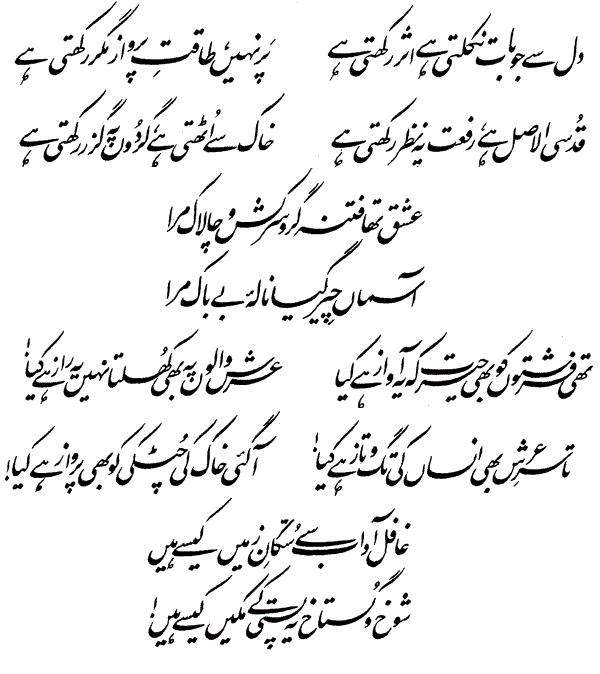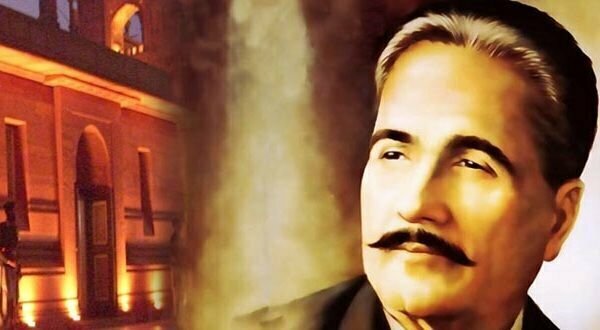The early life of Iqbal
Iqbal was born on November 9, 1877, in Sialkot. The subcontinent was under the influence of the British Raj at that time. Iqbal completed his matriculation in 1893 and got admitted to Government College University in 1895. He studied Arts in philosophy, Arabic, and English Literature for his bachelor’s. He received the Jalaluddin medal for his wisdom and talent at his graduation.
Iqbal then went to the University of Cambridge for his higher education in 1906, when he was invited to be a barrister at the Lincoln’s Inn. In 1908, he received a Doctor of Philosophy degree in the Development of Metaphysics from Ludwig Maximilian University of Munich. However, Iqbal started writing poetry in the Persian language to express his beliefs and thoughts. He expressed his Sufi beliefs through poetry, considered a great form of Sufism.
The dream of Pakistan
Allama Muhammad Iqbal beheld the vision of an independent state for Muslims of the Subcontinent. Through his words, he stirred the spirit in the Muslims to struggle for freedom. Iqbal joined politics, and in 1908 he became a member of the executive council of the Muslim League. He stood for the Muslims in the Round table conferences and discussed their political future.
In the historical Presidential address delivered on December 29, 1930, Iqbal demanded the creation of a separate homeland for the Muslims of the Subcontinent. He declared that a state made in the direction of national rules which negate the solidarity of Muslims is unacceptable, and the Muslims can’t stay in such a secularized political structure.
Iqbal’s declaration of a separate state received immense resentment and opposition from the British and Hindus. The Hindu press initiated a raging campaign against Iqbal and Muslims. Meanwhile, the Inqilab-e-Lahore started publishing editorials in support of Allama Muhammad Iqbal, saying that the Truth of Hindu conspiracies had been exposed.
Iqbal stressed the need for provincial autonomy as it ensured the safety of their rights, culture and religion in the provinces with a Muslim majority. Although Iqbal could not live long enough to see his dream, he truly lives in the heart of every patriot.

Significance of Iqbal Day
November 9 is celebrated yearly to commemorate the legacy of Allama Muhammad Iqbal. The day pays tribute to the great leader and Hakeem-ul-Ummat. The purpose of Iqbal Day is to honor his contribution to the Independence Movement and Urdu Literature. The Nation celebrates it to respect his intellect, philosophy, and poetry.
He was a true philosopher and intellect of his time. Allama Iqbal’s poetry plays a prominent role in the awakening of the Nation even today. He brought the true spiritual and philosophical revival of Islam across the subcontinent. His verses were not only about Pakistan but also about submission to Allah and his love for Prophet PBUH. Iqbal was inspired from the words of Rumi and was a member of Anjuman-e-Himayat-e-Islam.
Iqbal’s speech at Aligarh in 1910 emphasized his ideology which can be seen in his poetry. Iqbal believed that the revolution he aimed to bring could only be brought by fortifying the mindset of the youth and stirring up the sense of Khudi, which he highlighted in his poetry.
The day highlights the contribution of Iqbal to Pakistan. His advocacy of the New Nation’s ideology and contribution to the Two-Nation theory of Chaudhary Rehmat Ali, making the dream of Pakistan come true, is the true essence of this day.
Allama Iqbal Poetry
He studied and practiced law, but his passion for Urdu and Persian poetry made him popular among the masses. He inspired the frail Muslims of the subcontinent with his philosophy and poetry.
Mufakkar-e-Pakistan, Allama Iqbal is known worldwide for his philosophy and ideology reflected in the great verses of Iqbal. The iconic Shikwa Jawab-e-Shikwa is a true piece of art reflecting the intellect of Iqbal. In Shikwa (complaint), he complains to Allah for not fulfilling his promise to protect the Muslims from misfortune and loss. The book faced many controversies, and Iqbal published Jawab-e-Shikwa in which Allah answers that the followers of Prophet PBUH have turned away from the righteous path.

The poems are in the form of a dialogue between Iqbal and Allah, highlighting his mastery over Literature and his philosophy. Iqbal expressed his ideologies and philosophies through ghazals and poems. In his first book, Bang-i-Dara’s strong expressions of the agony of Muslim’s Powerlessness were used by mentioning Khidr. He highlighted the greatness of Islam and Muslims in the past to arouse the Muslims of the subcontinent.

Iqbal was God-gifted in using specific terms for expressing his political, religious, philosophical, and mystic thoughts. Iqbal initiated the concept of khudi and bekhudi by writing Asrar-e-Khudi, Rumuz-e-Bekhudi, and Payam-e-Mashriq.
The Iqbal’s work about submission to Allah holds its importance. He pointed out the shortcomings of secular nationalism in Western culture and his ideology of nationhood. Other iconic poetic books of Iqbal include Bal-e-Jibril, Armughan-e-Hijaz, and Zarb-e-Kalim. The work of Iqbal has been translated into foreign languages. R. A. Nicholson and Arberry translated Javed-Nama and Asrar-e-Khudi.

Allama Iqbal Philosophy
Iqbal is honored not only in Pakistan but worldwide for his poetry and philosophy are followed in all walks of life. His ever-green philosophy was not only for the Muslims of the subcontinent but also for the present Nation. Iqbal rested his whole life for the Muslims to bring them out of the dark pit they delved into. It is the Nation’s responsibility to follow his philosophy and be the ‘Shaheen’ he wanted the youth to be.
Iqbal asked the Nation to follow the Holy Book of the Quran for guidance. His work is unparalleled, and he will be the inspiration for generations to come. As Jinnah said, he will live amongst us through his philosophy and ideology.
Conclusion
The article concludes by bringing to light the importance of Iqbal Day and represents some of the greatest concepts of Allama Muhammad Iqbal delivered through his poetry.


